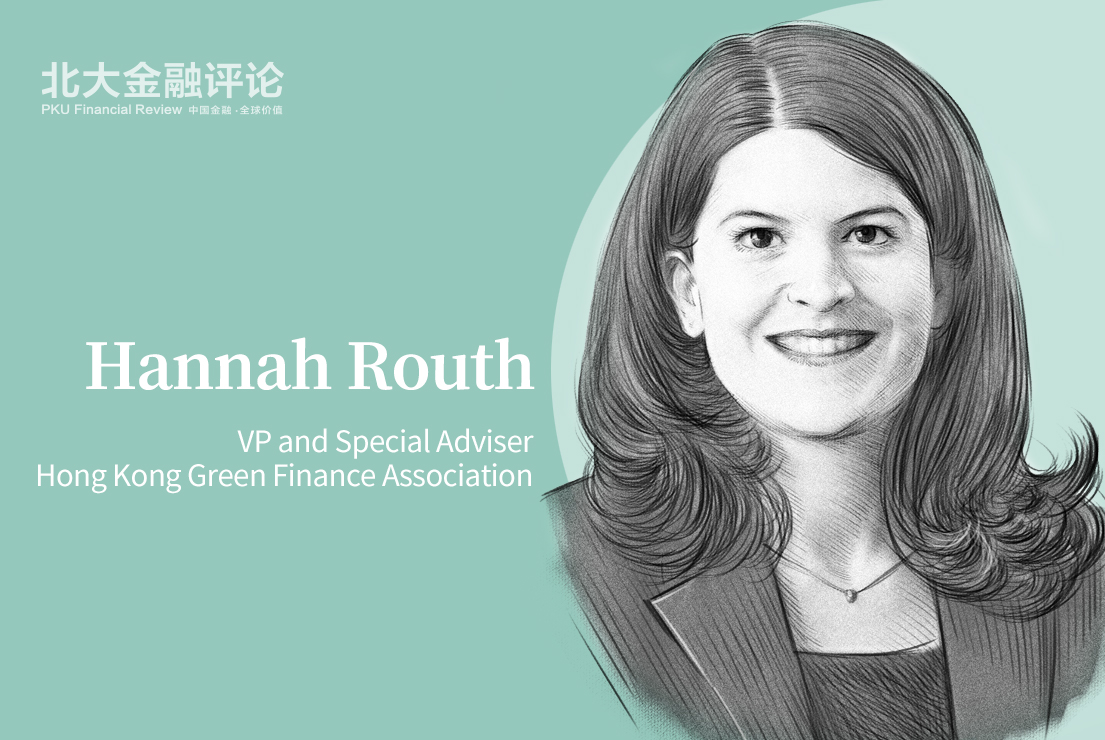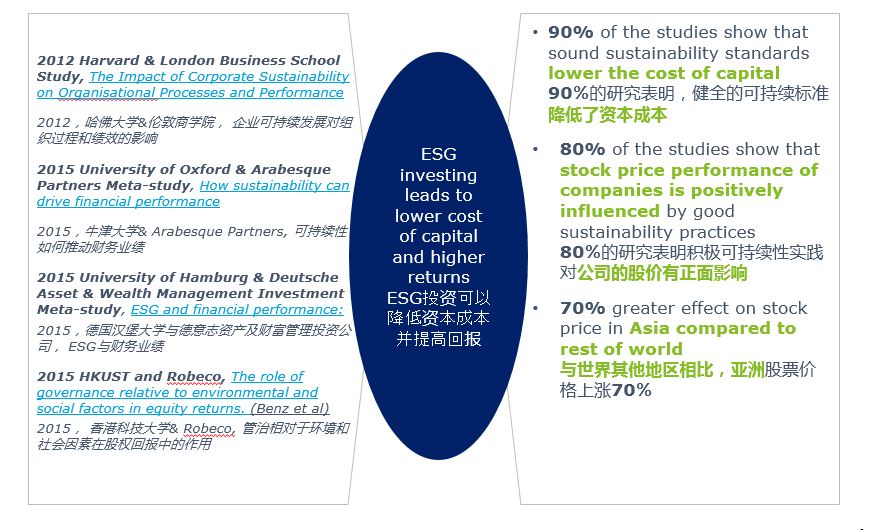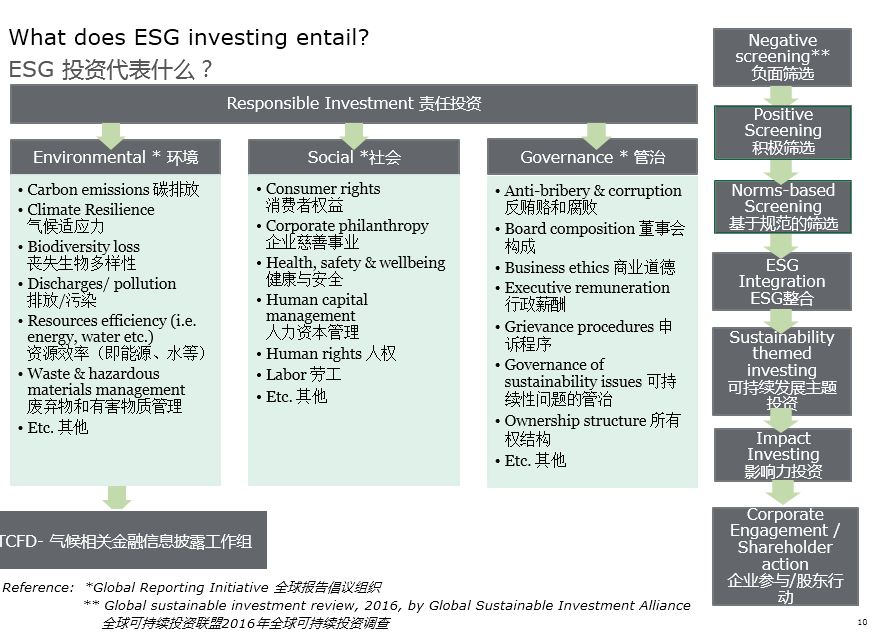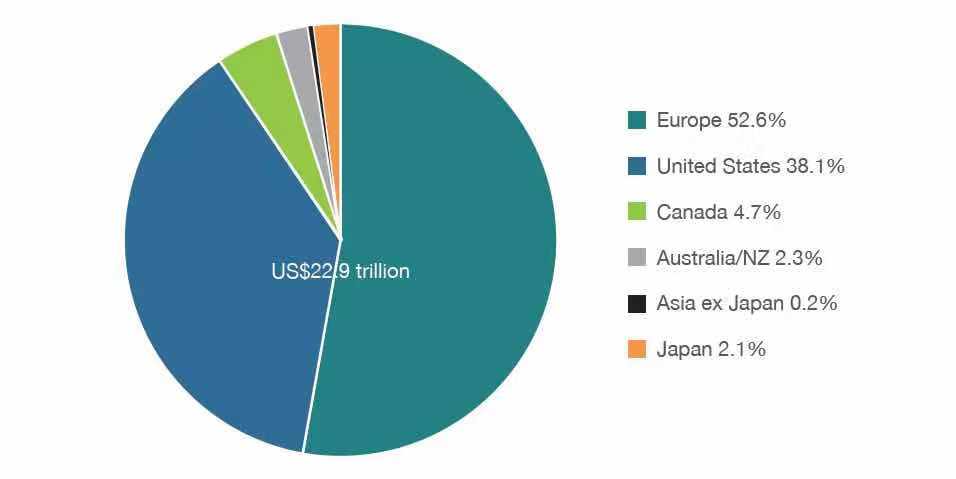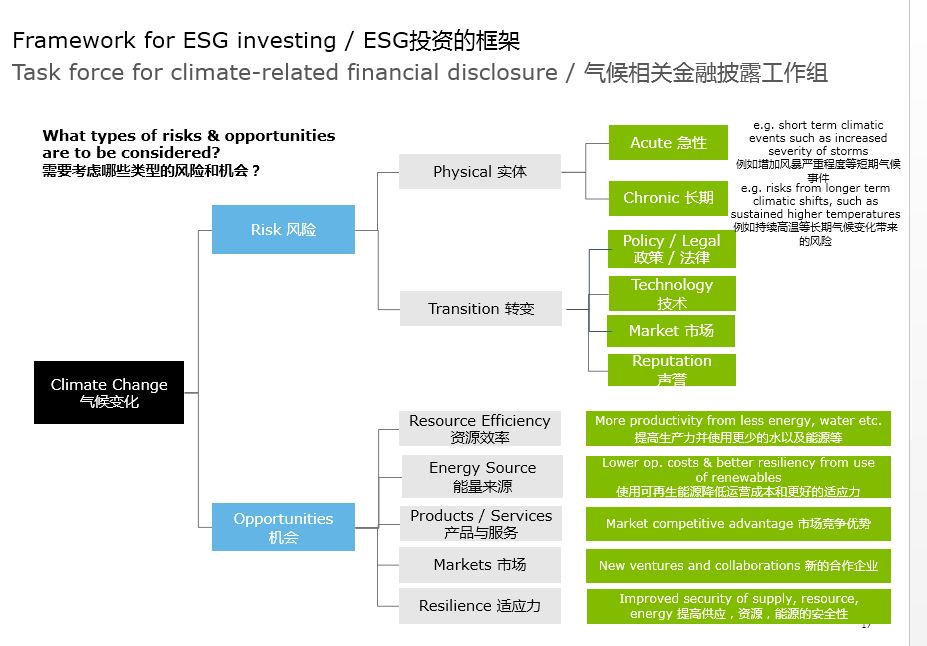Hannah Routh is the VP and Special Adviser of Hong Kong Green Finance Association. This article comes from a speech on 2019 Conference on Sustainable Finance. In order to get closer to Hannah Routh, PKU Financial Review inserts some questions as background information without changing her words.
PKU Financial Review: What is the role and vision of Hong Kong Green Finance Association?
Hannah Routh: Let me introduce Hong Kong Green Finance Association (HKGFA). There are many similar financial associations in China, and HKGFA is the latest among them. It was established based on the development of some global green finance associations and received support from Hong Kong government. We are a non-profit financial institution that mainly discusses the development of green finance. Part of our work involves cooperation with institutions in mainland China, especially the Guangdong-Hong Kong-Macao Greater Bay Area.
HKGFA has 7 working groups, one of them is ESG disclosure and integration working group. For a long time, people agreed that Hong Kong did well in corporate governance, especially within Asia. We believe that companies should not only focus on green, but also on corporate governance and their impact on society. Besides, there are working groups focusing on other parts of sustainable finance. For example, the research we are doing on Green Belt and Road has put forward some principles and initiatives for green investment.
Among the principles and initiatives for the Belt and Road, there are some strategic principles, that is, how investors should consider green finance. Besides, there are also principles on social impact and innovation. Why should everyone use these principles, especially using the United Nations Principles for responsible investment? The reason is that when we formulate our principles, we will take into account the characteristics of different regions and invite not only investors but also invested companies to join in the formulation of principles. In addition, we not only focus on the field of green finance, but also on the management of green supply chains. We hope that institutions in various industrial chains can join in the discussion of principles.
Hong Kong Financial Services Development Council issued guidelines and policies on Hong Kong’s ESG development in November 2018, which provides direction for Hong Kong government and policymakers to better integrate ESG strategies. The Hong Kong Monetary Authority also required managers of listed companies to follow ESG related principles and disclosure requirements. We hope that there will be more and clearer regulations in the future to guide managers of listed companies to apply some ESG indicators.
PKU Financial Review: How do you think about current global ESG investment? What are the outstanding issues currently?
Hannah Routh: Let me show you the research results of some international universities in this field, as illustrated in Figure 1. These results can help people better connect ESG and value creation. For example, 90% of the studies show that sound sustainability standards lower the cost of capital; 80% of the studies show that stock price performance of companies is positively influenced by good sustainability practices. In addition, a study by the Hong Kong University of Science and Technology focused on corporate governance. They found some positive connections between ESG and corporate governance, especially in the Asia-Pacific region. I think these are particularly important studies that deserve to be introduced to everyone.
Figure 1
What does ESG investing entail? As shown in Figure 2, starting from the top, we see that the largest part of ESG investment is the negative screening strategy, which is a very direct and positive screening. The study by Hong Kong University of Science and Technology also pointed out the investment strategies that integrate ESG with existing investment strategies are now the most effective strategies that can create excess returns. There are also sustainable development investments, active shareholder investments, etc. Sometimes people think that ESG investing may sacrifice certain financial returns, but it turns out to be the opposite in most cases.
Figure 2
Let’s take a look at the ESG investment situation in recent years. This is a report from the Global Sustainable Investment Alliance in 2016. As you can see from Figure 3, the largest blue part is the United States. Among Asian countries, only Japan has a very large growth. This is because a large part of Japan’s pension will be placed in ESG investments, while other regions in Asia still need more growth.
Figure 3
What is the situation in China? Though I am from the United Kingdom, I have been working in China for more than 10 years, and I think China is currently in a leading position in green finance. The United Kingdom and France are also at the forefront, but China is leading the world in green finance.
In the past, sustainable development pay little attention to the fields of social and corporate governance, but some recent studies have found that more and more people are paying attention to these fields. There are more and more people in China discussing ESG, one of the main signs is that MSCI began to add Chinese stocks to the Asian index in 2018.
Some experts and scholars compare China with the world in ESG, such as the differences between China and the world in the environment. Global countries will also discuss human rights, but in China, people are more concerned about poverty alleviation. Many institutions are discussing how to integrate Chinese and international indicators. I do not absolutely agree with this, but I think we need to explain and understand the differences between China and international indicators in order to help investors find the data they need and help them better understand how to make ESG investments in China. For example, the guidance on green investment issued by the People's Bank of China, the China Securities Regulatory Commission and the Asset Management Association of China can help institutions to understand China's ESG development.
Last but not least, I would like to talk about climate issues. In China, I think the environment is the most important part and the biggest risk of ESG, since the biggest risk indicator of ESG comes from environmental risks. Not only environmental protection related NGOs concern about environmental issues, but more investors also begin to reduce investments related to environmental pollution. We hope that more companies can disclose their environmental risks, especially the financial risks and impacts caused by these environmental risks on the company, such as the actual impact of floods and temperature changes on the environment. In China, the carbon trading market has a very direct financial impact on companies.
Next, I would like to share with you the work of the Task Force on Climate-related Financial Disclosure (TCFD) released in November 2018. Some institutions in China and UK have also joined this working group, trying to find out what issues can be worked and disclosed together jointly by the two countries. I would like to focus on two points. First, we need a long-term implementation plan. When we discuss information disclosure with clients, there are many challenges, such as how to tell clients to establish a long-term implementation plan and let both the board of directors and the company agree on such an implementation plan, since most companies only focus on financial data in the last few months. Second, we need to analyze the development and application under different situations, and conduct more experiments to understand the impact on companies when the actual situation changes.
Figure 4
Currently, we have a lot of data in the field of ESG, but we lack effective data that can help investors to make quick investment decisions. Under this situation, the China Securities Regulatory Commission begins to pay more attention to issues related to information disclosure, the Shanghai Stock Exchange and Shenzhen Stock Exchange also pay attention on how to guide companies to disclose.
Studies show that responsible investment can create value. In Asia, we find that green finance has an increasing growth trend. However, none of any institution or region can achieve success on its own. We need to work together with many different institutions to promote development in this area, including universities, research institutions and financial organizations.





